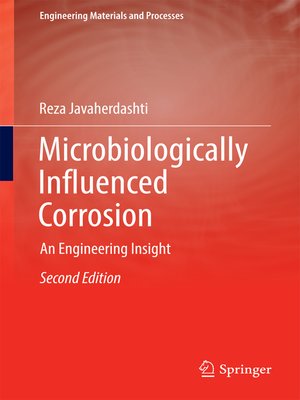Microbiologically Influenced Corrosion
ebook ∣ An Engineering Insight · Engineering Materials and Processes
By Reza Javaherdashti

Sign up to save your library
With an OverDrive account, you can save your favorite libraries for at-a-glance information about availability. Find out more about OverDrive accounts.
Find this title in Libby, the library reading app by OverDrive.



Search for a digital library with this title
Title found at these libraries:
| Library Name | Distance |
|---|---|
| Loading... |
Significantly extended from the first edition, this book presents the basics of microbiologically influenced corrosion (MIC) in an accessible and concise manner. It explores strategies for recognizing, understanding, mitigating and preventing this type of corrosion, and investigates this topic from the point of view of an engineer. Chapters cover issues including stress corrosion cracking and microbial corrosion, the pros and cons of biocides, the involvement of magnetic bacteria in microbial corrosion, and cathodic protection based on recent research in microbial environments. The 2nd Edition provides new material examining the following topics: *The corrosion-related bacteria clostridia
*Mathematical modelling of MIC, in particular fuzzy logic
*A comparison of culture-independent methods with culture-dependent methods
*Further practical strategies for dealing with MIC
*Natural biocidesThis book has provided course material for the author's microbial corrosion workshops around the world, and it presents an invaluable resource to corrosion and integrity professionals working in a wide range of industries including power generation, oil and gas, marine, and mining. It is also intended for students and academics of corrosion engineering, materials science, microbiology, chemical engineering and welding.
*Mathematical modelling of MIC, in particular fuzzy logic
*A comparison of culture-independent methods with culture-dependent methods
*Further practical strategies for dealing with MIC
*Natural biocidesThis book has provided course material for the author's microbial corrosion workshops around the world, and it presents an invaluable resource to corrosion and integrity professionals working in a wide range of industries including power generation, oil and gas, marine, and mining. It is also intended for students and academics of corrosion engineering, materials science, microbiology, chemical engineering and welding.







